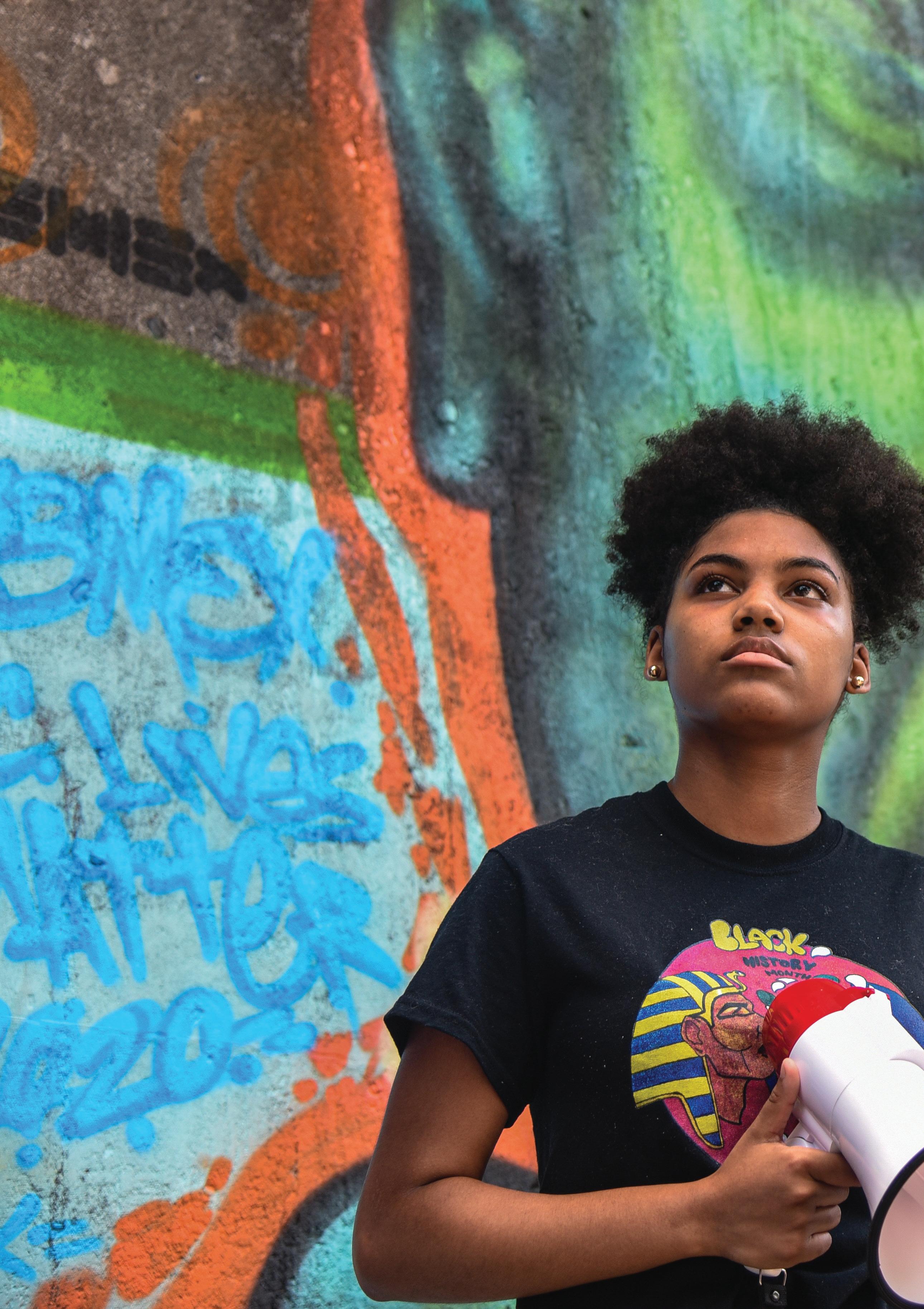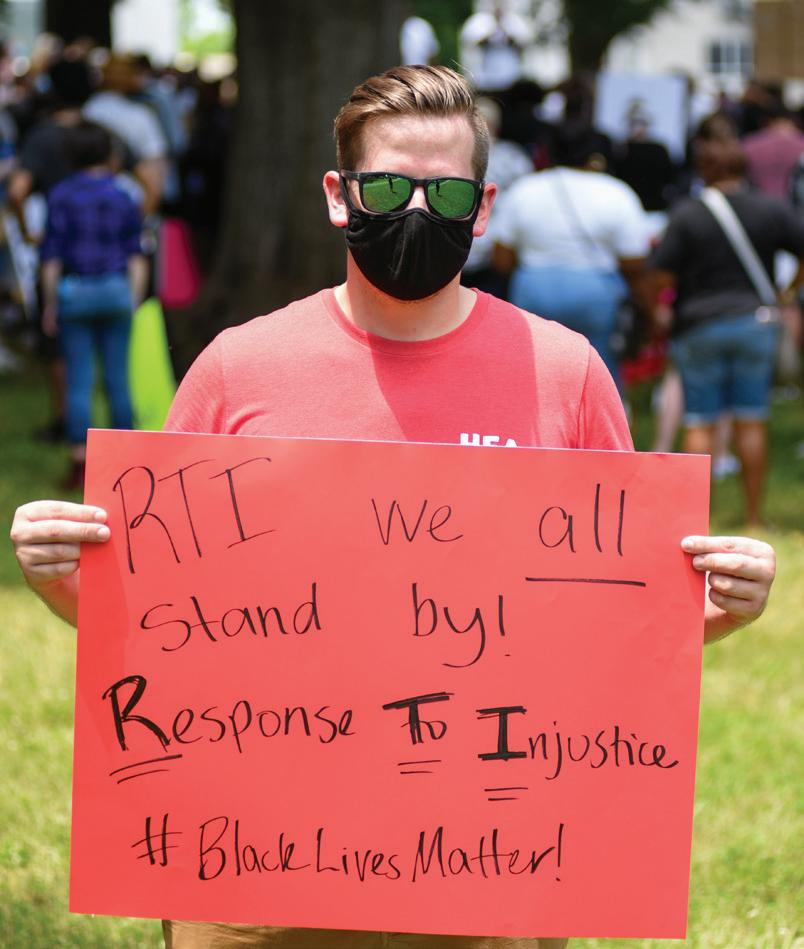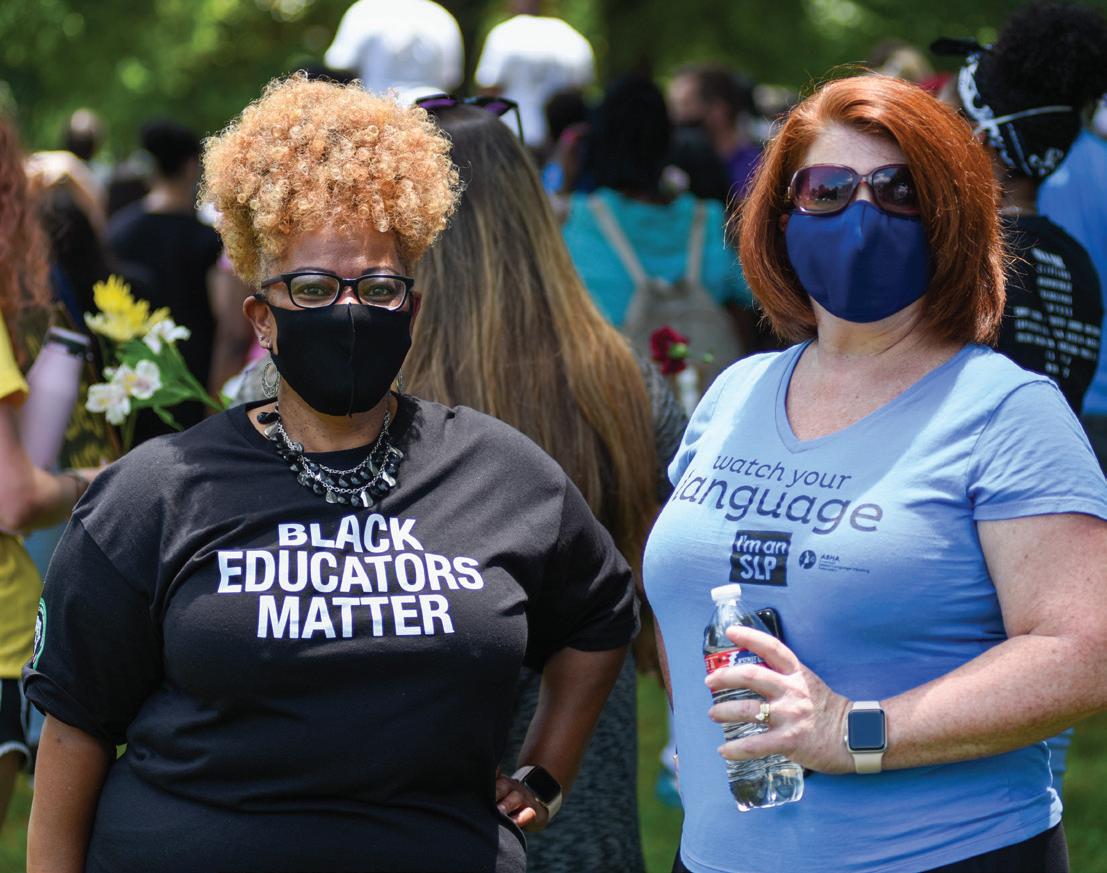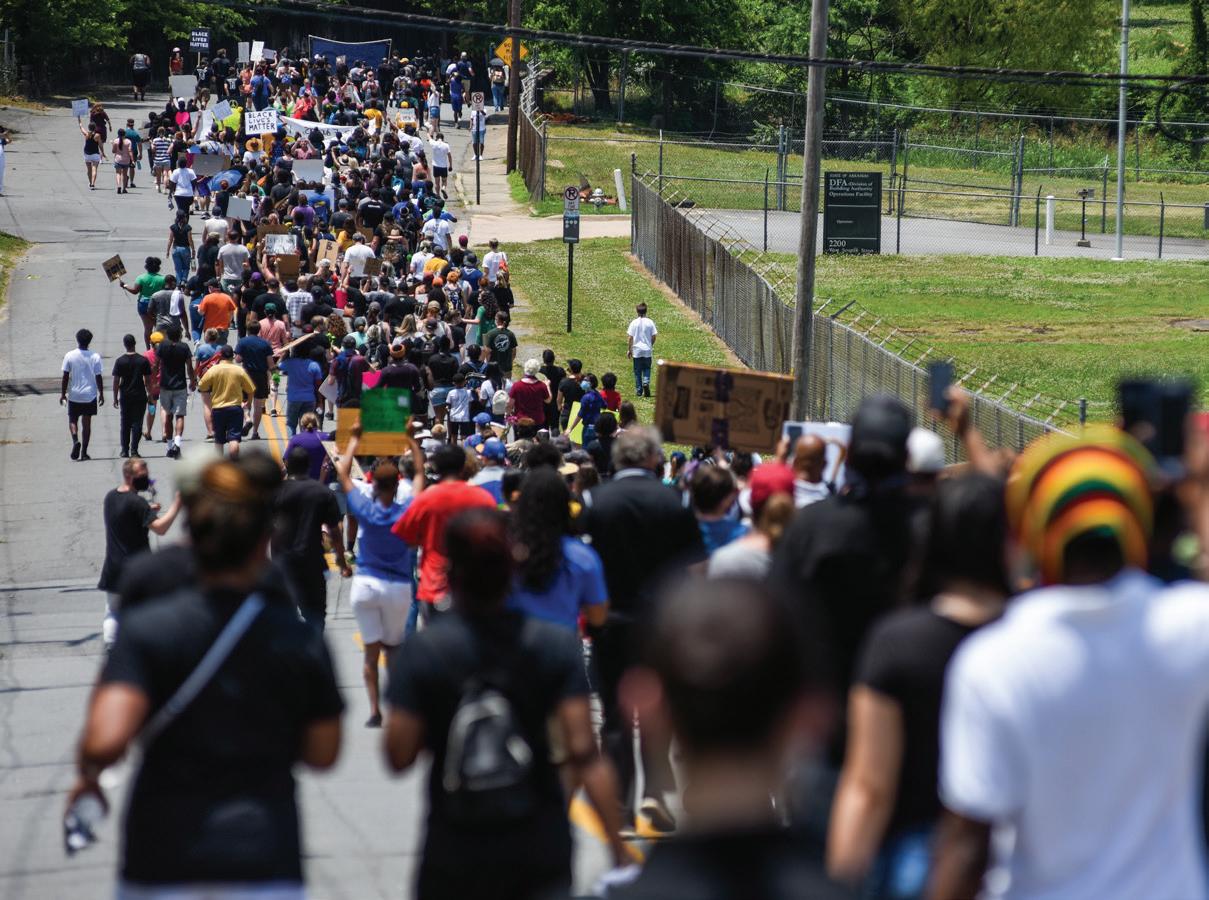
3 minute read
Photo Essay
RESPONSE TO INJUSTICE: EDUCATION MARCH

Advertisement
I was there because I received a call from the organizers. I remember it vividly. I was in the kitchen fixing a sandwich when I received a text asking if my number could be shared with someone who wanted to talk to me about an idea. The call started with, “Hey Mrs. Mc, what you think about...” were the first words outta
Wendell Scales mouth. Wendell, a former college recruiter who had spent years in my classroom as a guest speaker to my AVID students, then introduced me to
Johnny (Laine, the other organizer) and the three of us started sharing and tweaking a barrage of ideas. An urgent, anxious resolve transmitted through the sound waves of the phone. Within less than 24 hours, and with the logistical help of many people including educators and students, the original ideas had morphed and solidified into the Educators Response to Injustice. This event was followed with a student writing campaign and caravan (Response to Injustice II) to the Governor’s Mansion to drop off those letters.
– Stacey McAdoo Little Rock Education Association

I came to march because systemic racism and police brutality is something that affects my students every single day.
I have heard the fears of my friends, colleagues, and students, and that is a fear that no person should have based on the color of their skin. It is important that we amplify the voices of our students and friends that are not heard. We teach our students that when someone is talking, it is time to listen. Now it is my time, and educators alike, to listen and show our support in whatever ways we can.
– Hosea Born Hope Education Association

The horrific death of George Floyd ignited a wave of global protest that fueled a movement calling for an end to police brutality and led to changes in symbols of racism, such as flags, statues, and changing the name of schools. My participation in the Educators
March for Black Students was an electrifying symbol of solidarity with educators across the state uniting together to lift the voice of BLACK STUDENTS. It was a phenomenal experience to be in the midst of unique educators and students representing our democracy, joining together in the fight for social justice.

As a black educator, I have witnessed the systematic inequalities and racism within the educational school systems. I am an advocate for the social justice movement to focus on and take a hard look at how students of color are treated with the K-12 education system. Having open and honest conversation to address racist policies and practices that affect students of color is paramount. Research has shown black students are more likely to be disciplined than white students for the same behavior. These disparities can have a long-term effect. I have been teaching 25 years and I’ve witnessed the high suspension rates of black students. We must eliminate the school to prison pipeline. Educators enter into the classroom with unconscious biases. Recognizing and challenging those biases is the first step to ending discipline inequities. We must be intentional and committed to elevate our voices to fight for ways the school system can evolve to meet the needs of black and brown students. Together, educators, students, parents and the community can lead the charge of leading discussions on how classrooms and communities can have an impact on dismantling institutional racism. Culturally responsive curriculum along with restorative justice training must be readily accessible to educators. “Our lives begin to end the day we become silent about things that matter” - Dr. Martin Luther King Jr. We cannot be silent!!! I am made with melanin and unapologetically BLACK. BLACK LIVES MATTER!!
– Brenda Robinson NEA Director-Arkansas

I was so happy to participate in the Educators Response to Injustice because, until racism is exposed in the classrooms in front of students, we will never move beyond it.
– LeRon McAdoo Little Rock Education Association











